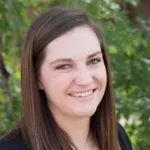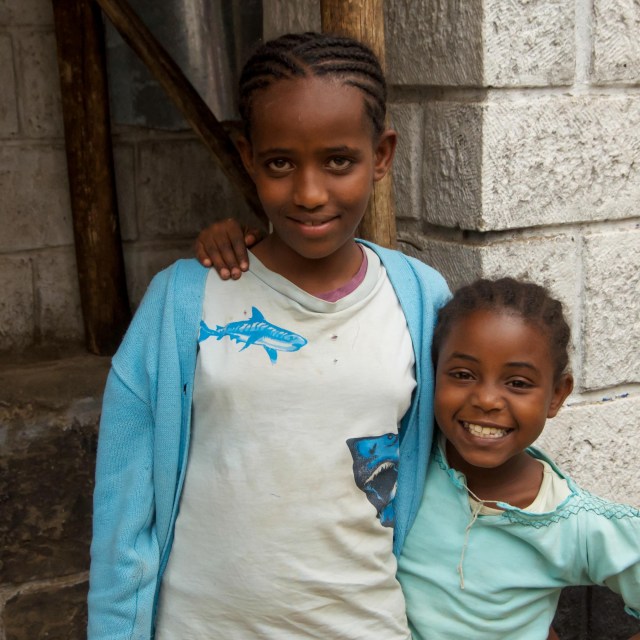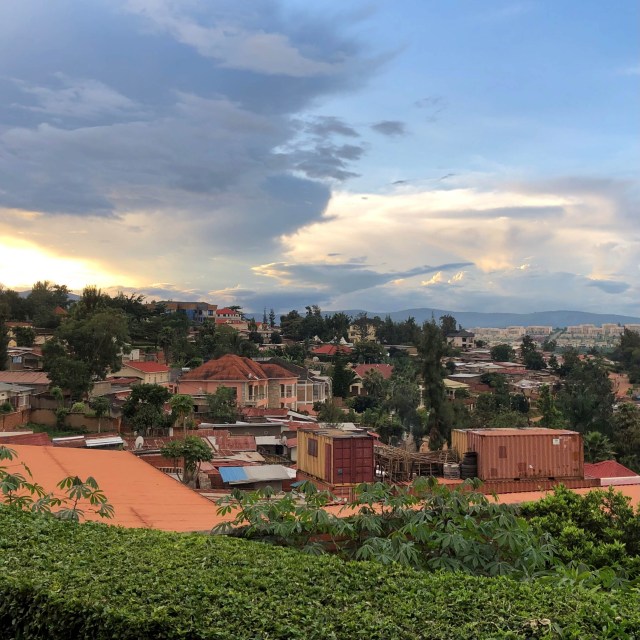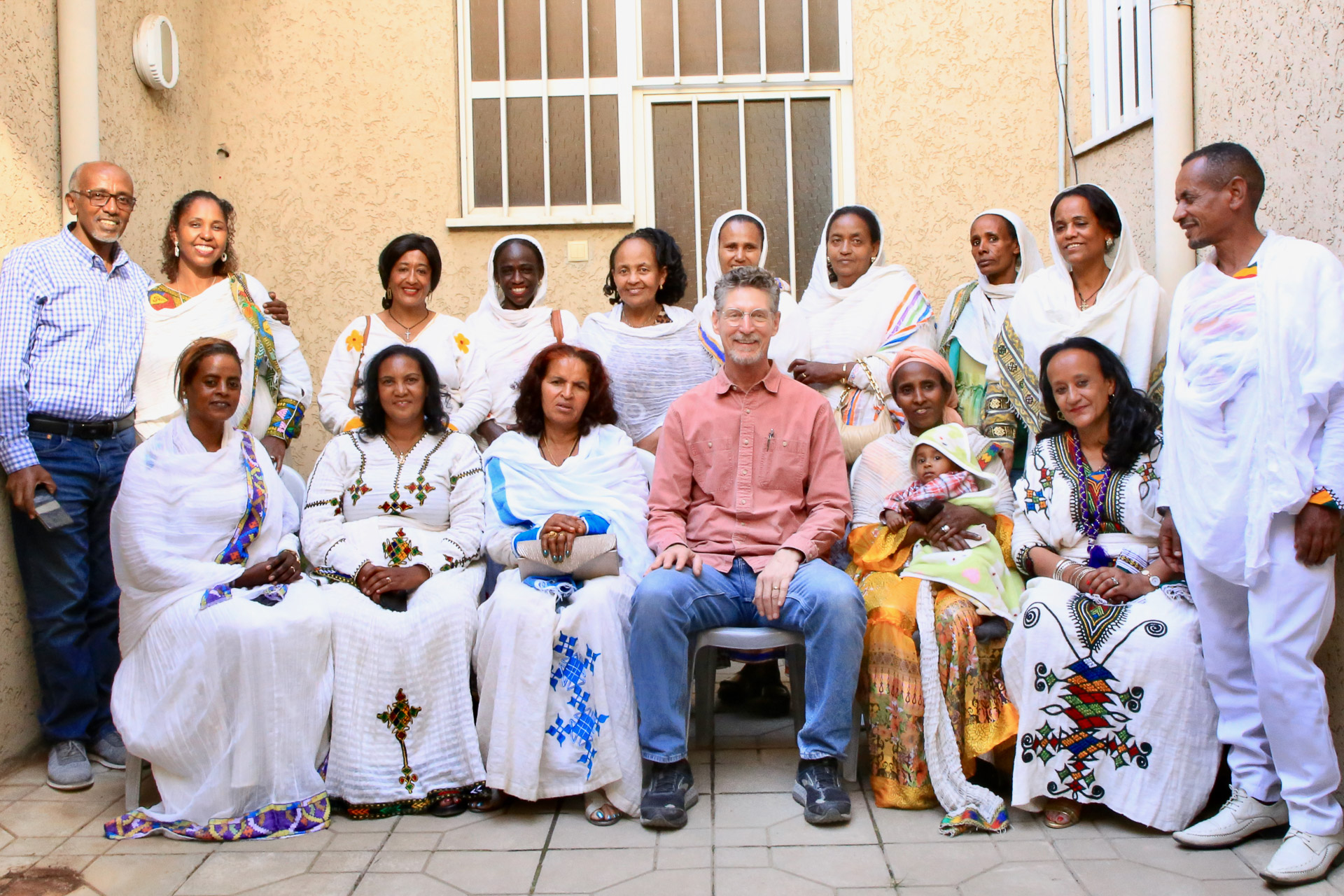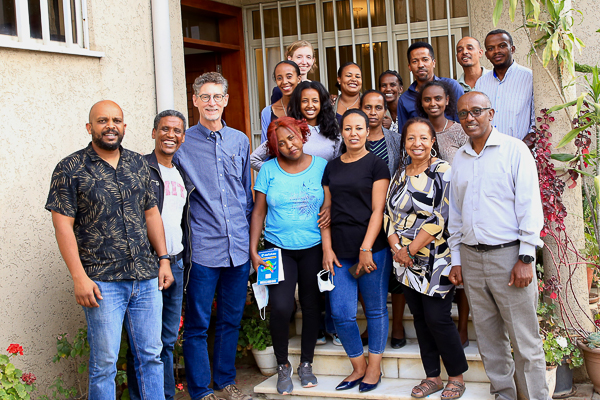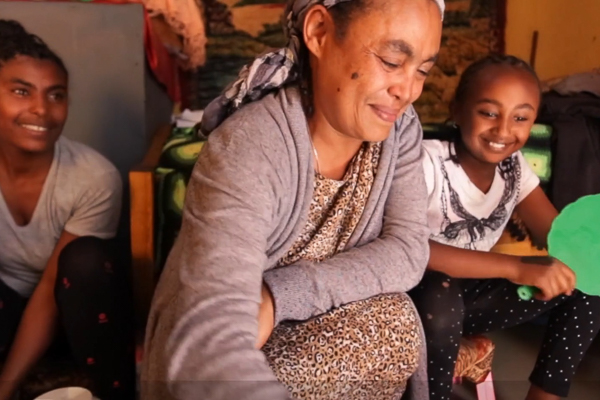Fifty Years and Counting
Karl and Debbie Dortzbach Reflect on Five Decades of Missionary Service

It was a normal day at the American Evangelical Mission Hospital in 1974 Eritrea, Ethiopia, when guerrillas from the Eritrean Liberation Front stormed the building and kidnapped American missionary nurse Debbie Dortzbach and Dutch missionary nurse Anna Strikwerda.
“Don’t be afraid Debbie. God is with us,” Anna told her young co-worker.
Those words were so comforting to Debbie who was 24 years old and pregnant with her first child. She and her husband, Karl, had been serving in Eritrea for almost a year when she was abducted.
The soldiers beat the two women and forced them to run into the mountains. At one point Anna, who was in her 50s, lost her shoes and began to slow down. She was shot and killed by one of their captors. Debbie continued running for another two hours when a helicopter picked them up and transported them to a remote location. She spent 26 days in captivity while, unbeknownst to her, Karl negotiated her release.

Debbie continued running for another two hours when a helicopter picked them up and transported them to a remote location. She spent 26 days in captivity while, unbeknownst to her, Karl negotiated her release.
This shocking and distressing event was the beginning of a 50-year missionary career during which God placed the Dortzbachs at the center of some of Africa’s greatest tragedies. As they faithfully served in the darkness, they witnessed the amazing truth that Jesus’ glory shines brightest against the blackest of backgrounds.
A Defining First Assignment
Karl and Debbie met at Wheaton College though both finished their undergraduate degrees at different schools—Debbie transferred to Columbia University to study nursing and Karl studied special education at Georgia State University. After graduating from their respective schools, they married and moved to Philadelphia where Karl attended Westminster Seminary and Debbie worked as a public health nurse. During their young adult years, God began to tug them toward global missions and in 1973 their Orthodox Presbyterian Church in Philadelphia sent them to Ethiopia for a year to explore this call.
As the Dortzbachs look back on their short time in Ethiopia, they can trace the ways God used it to influence their lives and career. Debbie worked as a nurse at the American Evangelical Mission Hospital and Karl taught missionary children and helped local pastors with elder training. The Lord confirmed their calling to global missions and solidified their understanding of their ministry skills and gifts. As they worked with local churches and pastors, they developed a lifelong philosophy and commitment to partnership-based missions.
Then there was Debbie’s kidnapping—the hallmark and conclusion to their time in Ethiopia.

From the moment she began running on that providential day, God’s Word flooded her mind reassuring her that He was present during this horror.
From the moment she began running on that providential day, God’s Word flooded her mind reassuring her that He was present during this horror. She did not have a Bible, but she was able to embroider God’s Word on pieces of cloth her captors gave her—an exercise that powerfully strengthened her during the long, difficult, and uncertain days of her confinement.
Debbie was released on June 22, 1974, without anyone having to pay a ransom. A few months later, she gave birth to a healthy baby boy. The Dortzbachs named him Joshua which means “the Lord is salvation” as a testimony to God’s protection and care for Debbie and the baby during captivity.
“It catapulted us into this whole area of serving others who have been through trauma and far, far worse struggle,” says Debbie. “We know that God gave that to us early in our ministry so that we would be better equipped to journey with those that have suffered deeply. And now we say thank you for the privilege of witnessing just a tiny piece of that journey.” Debbie and Karl later detailed their story in a 1975 book, “Kidnapped,” published by Harper & Row.
“It’s certainly defined our lives in every way—spiritually, emotionally—and threw us into a global role that we didn’t understand or invite, but God chose for His purposes,” says Debbie.
After Ethiopia, Karl and Debbie returned to the United States for four years while Karl finished seminary and planted an OPC church in the U.S. They were eager but unable to return to Ethiopia because of political unrest. In 1980, God called them to join a World Presbyterian Missions team—which later merged with Mission to the World—in Nairobi, Kenya, where they would live and serve for the next 20 years.
Taking on the HIV/AIDS Crisis
Their time in Kenya was cut in half by a significant home ministry assignment in 1990 during which their 9-year-old son contracted a life-threatening illness. The Dortzbachs had to remain in the U.S. for their son’s treatment and continued their missions work by partnering with MAP International—a Christian organization that delivers medicine, health supplies, and health education to medical workers all over the world. This partnership allowed them to work with MAP International and still remain with MTW. The adult education training they received from MAP prepared them for the work awaiting them in Kenya.
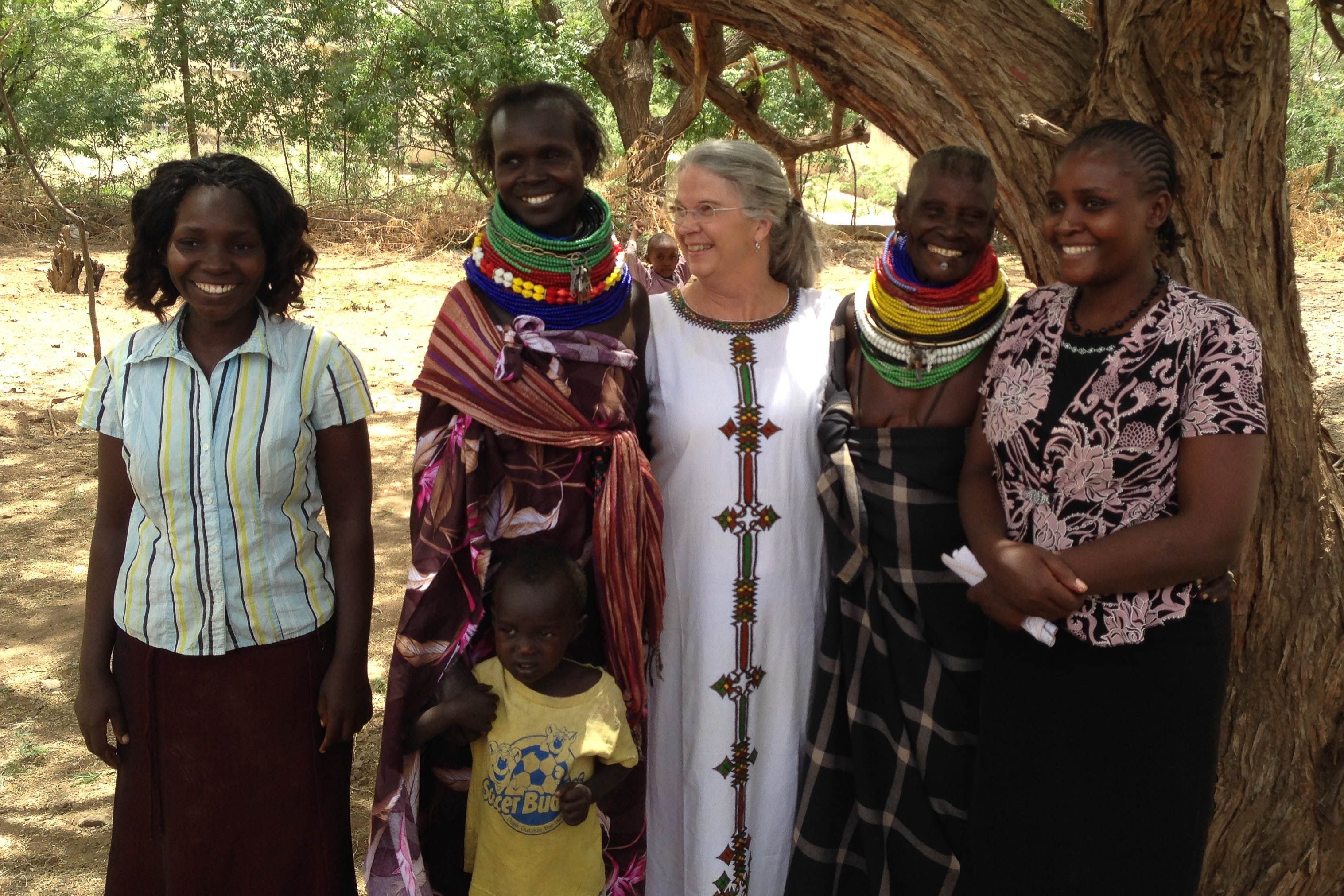
The Dortzbachs returned to Nairobi in 1992 at the height of the African HIV/AIDS crisis. Debbie, who had gotten her master’s in public health from Emory University during HMA, began working as MAP’s director for HIV/AIDS. She and her team educated local churches on how to care for those with AIDS and to help stop the spread of the deadly virus.
“At the time, pastors were refusing communion to people with AIDS and shutting the doors on people who resembled anything with the look of AIDS. But the pastors themselves were dying of AIDS. … They were very hypocritical and didn’t know what to do about it,” said Debbie.
The Dortzbachs worked to dispel the idea that AIDS was a curse. They wanted local churches to see AIDS was actually a symptom of unbiblical behaviors in marriage and romantic relationships—especially the abuse of women—and that Scripture speaks to this. Using the adult learning methodology they received from MAP International, the Dortzbachs facilitated the development of a catalogue of resources and training materials among local churches equipping them to address the AIDS crisis in their communities. These included a pastoral counseling program, home care methods, biblical studies for healthy marriages, ministry resources for youth, and manuals for caring for orphans.

Change was slow and many people died, but as the Dortzbachs pressed on God expanded their work in ways they never dared to imagine.
Change was slow and many people died, but as the Dortzbachs pressed on God expanded their work in ways they never dared to imagine. Debbie became the global director for HIV/AIDS at World Relief, the relief agency for the National Association of Evangelicals, and represented Christian organizations before Congress in appealing for PEPFAR (President’s Emergency Plan for AIDS Relief) under President George W. Bush. Countries throughout Africa and Southeast Asia used the resources they helped develop. UNICEF—a United Nations agency that provides humanitarian and developmental aid to children—adopted and still uses the pastoral counseling program. The CDC of China adapted the materials for their context and partnered with local churches to get them to the communities where people were dying. Most significantly, it opened the door for the Church to take a prominent role in society and a leading role in addressing the HIV/AIDS crisis.
“God used people going into homes and being with their dying neighbors all night and showing the compassion of Christ by reading the Scriptures and singing to them. And then taking in their orphan children,” says Debbie.
She continues., “God just really, really blessed the Church and we saw declarations made. We saw youth declare their commitment to be faithful and changes in their behaviors, we saw funding come in, we saw incredible responses from the government—and exponentially we saw the rates of HIV go down.
A Ministry of Reconciliation After Violence
During their HMA in 1990, Karl began working on a MAP International team developing a training course in trauma healing for the Christian Health Association of Liberia. The country was in the middle of a gruesome civil war and MAP’s contacts in Liberia asked for help in bringing people back together.
“What’s your background in reconciliation?” a colleague asked Karl on a plane to Liberia.
Karl knew his teammate wasn’t asking a theological question—he was asking a practical one. Karl replied honestly and said, “I don’t have any.”
“I could give an answer as to how someone can be reconciled to God but didn’t have a clue how to cultivate reconciliation between men,” says Karl. “He looked at me a little bit hopelessly thinking, ‘We’re in deep weeds. You don’t have a clue.’”
The following month God took Karl on what he describes as a “a deep dive into the middle of enormously painful human existence and trying to get my head wrapped around the theology of suffering on a level that I had not imagined.”
On the trip, Karl heard disturbing stories about the atrocities the Liberian people committed against each other—stories so horrible that no matter how much time passes they remain just as vivid in his memory as when he first heard them. Stories such as a 12-year-old boy who had been strapped to a chair and forced to watch his family tortured.

But Scripture is really clear when it says, ‘How can you be reconciled to God when you’re not reconciled to each other?’ That began a bit of a transformation in my own life and my own heart and my own reflection.”
But these weren’t fictitious stories—they were realities Karl had to come to terms with. “I began to have to process those things and I realized I didn’t really have a theology of human to human reconciliation. But Scripture is really clear when it says, ‘How can you be reconciled to God when you’re not reconciled to each other?’ That began a bit of a transformation in my own life and my own heart and my own reflection.”
A few years later, when the Dortzbachs were back in Kenya, four Rwandan refugee pastors found Karl and asked for his help. They were reeling from the violent genocide that devastated their country and had a copy of the reconciliation manual Karl helped write for the Christian Health Association of Liberia. At first Karl was hesitant—he didn’t know anything about Rwanda, there was no funding to start projects in Rwanda, and he still did not have a fully formed philosophy of reconciliation. But the pastors persisted.
With their help, Karl put together a workshop for 50 Rwandan pastors from both the Hutu and Tutsi tribes. “For two days, I just asked questions … and I was deeply moved by their response to those questions. And those questions were the things that began to cement their action.”
Desperate to bring healing to their country, they told Karl they would do something with or without his help. As he watched them make plans for a ministry of reconciliation, Karl thought to himself, “Well, how can I not do something?”
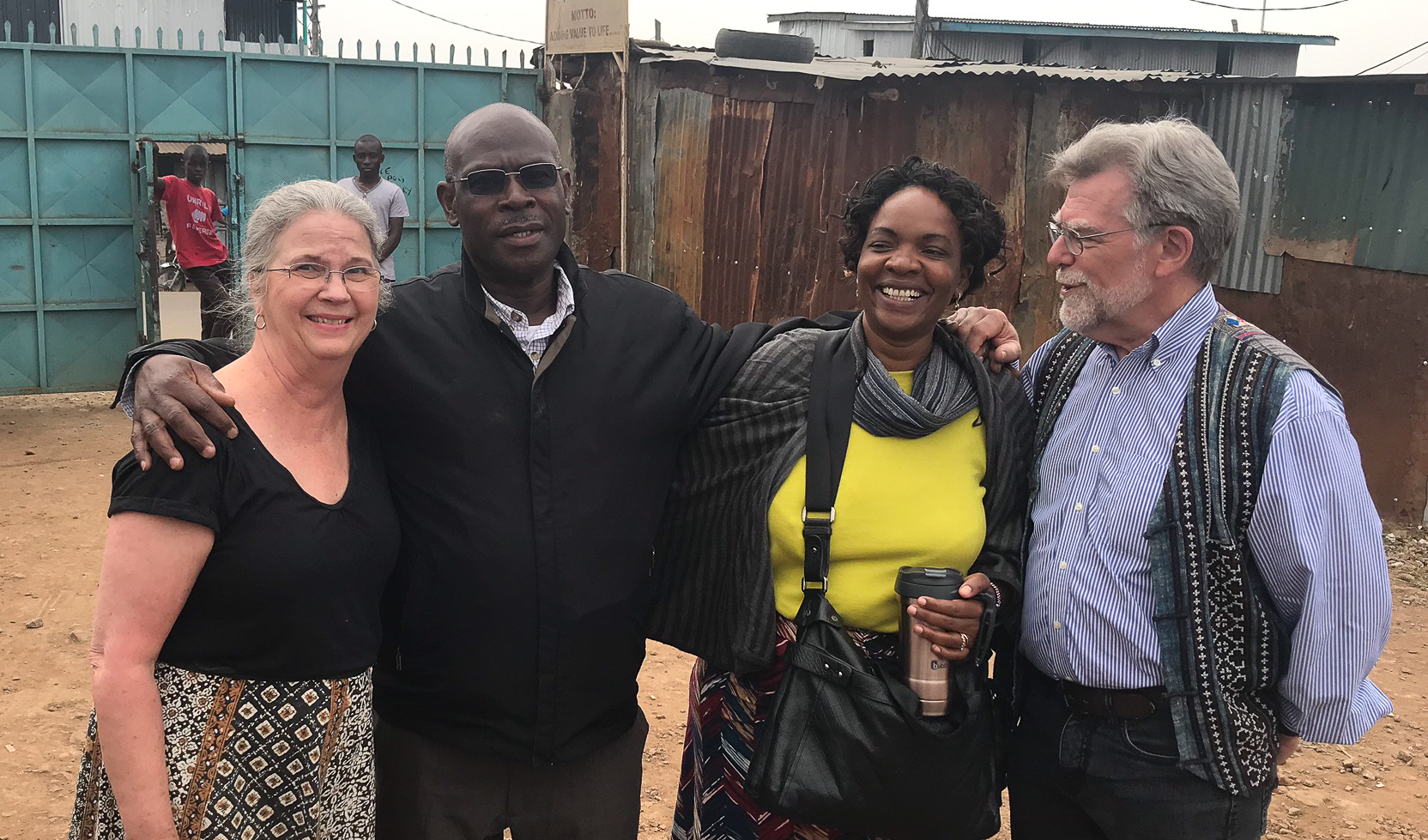
Karl placed desks in his office to provide these men a space to work. Slowly, they developed a healing and reconciliation team and ministry. In some ways they were building the plane as they were flying it, but God expanded their ministry beyond anything the team thought possible. Once again, Karl used the adult learning methodology from MAP to create resources, send newsletters, and host training events and interventions for people from Rwanda, Burundi, Congo, Tanzania, and Sierra Leone who had suffered unimaginable trauma. Meanwhile, the team collected their stories to understand what brings healing to people who have experienced trauma.

“We were helping them process their own story and helping them move toward healing first and then toward reconciliation. And reconciliation needed to be confessing, it needed to be forgiving.
“We were helping them process their own story and helping them move toward healing first and then toward reconciliation. And reconciliation needed to be confessing, it needed to be forgiving. All of those steps need to be a process that was more than verbal. Sometimes it was sharing a cup of tea,” says Karl.
Karl’s journey of developing a theology and philosophy of biblical healing and reconciliation led him to pursue his Ph.D. in conflict management. He has been focused on training adults in conflict resolution and reconciliation ever since God initiated this calling in Liberia. He developed curricula and courses for seminaries and universities across the global South, notably a Ph.D. program in Biblical Peace Studies for the International Graduate School of Leadership based in Manila. Students from Lebanon, Sri Lanka, India, the Philippines, Zambia, and the United States have graduated from the program—many of whom went on to develop new schools or peace studies programs—and students from Cameroon, Ethiopia, Uganda, India, and Australia are currently enrolled. Along the way, he has witnessed the Holy Spirit’s great work in restoring relationships and establishing hope among people who have suffered violence, oppression, and abuse.
Slowing Down But Not Stepping Out
In 2004 with the Dortzbachs ministry spanning the globe in reconciliation, HIV/AIDS, and health ministries, they left their home of 26 years in Africa and moved to Baltimore, close to an international airport and the locus of World Relief where Debbie would serve as the global director of health and social development. For the past 20 years, they have helped MTW missionary teams and churches all over the world with the creation of public health initiatives and training church leaders through academic doctoral and pastoral courses in biblical peace studies. At the end of 2024, they will retire as MTW missionaries after 50 years with the organization. But their work goes on. Karl said they are slowing down, not stepping out. Debbie will continue her work in the international public health arena and Karl will keep training leaders in peacemaking.

I think what characterized us is that we’ve been foot soldiers all along,” said Karl. “But then we wanted to make sure other foot soldiers were equipped.”
“I think what characterized us is that we’ve been foot soldiers all along,” said Karl. “But then we wanted to make sure other foot soldiers were equipped.”
They are foot soldiers that God placed in some appalling battles with no victory in sight. They were exposed to an unprecedented level of evil and suffering that seemed unending. Sometimes it was hard to see God at work and those are the times when Debbie would return to “an awe in the majesty of Christ.”
“We’re not superhuman,” she says. “We’ve had many deep wounds and challenges both personally and as a family … But when I’m overwhelmed that’s where I run and I’m never disappointed.”
They’ve seen His majesty and glory radiate during some dark moments in human history and can testify that neither civil war, violence, genocide, abuse, or AIDS can prevent God’s work in advancing His kingdom. The Dortzbachs will continue working for the glory of majesty of Christ, looking forward to the day when it will be fully seen and God’s mission is accomplished.
